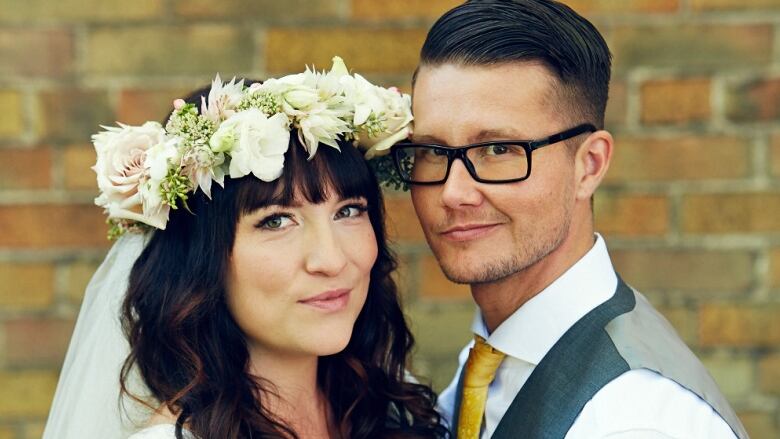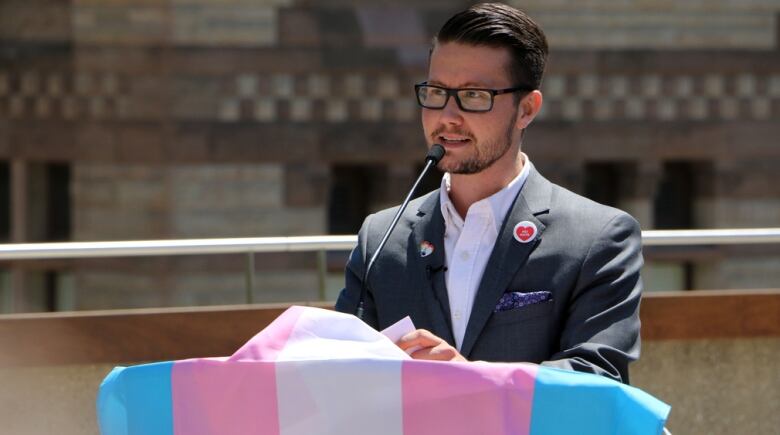Transgender patients face health-care discrimination, inadequate treatment
Health experts from around the world gather in Amsterdam for transgender summit

It's estimatedthere are now 25 million transgender peoplearound the world, and in agroundbreaking series published in the medical journal The Lancet, the authors saymany are routinely denied basic humanrights.
"Faced with stigma, discrimination and abuse, transgenderpeople are pushed to the margins of society, excluded fromthe workplace, their families and health care," writesSamWinter, one of the lead authors of a journal paperreleased ahead of aconference on transgender rights in Amsterdam.
Winter'sresearch at Curtin University in Australiafocuses on gender diversity and transgender rights andhealth.
- Only 1 Ontario clinic could refer transgender patients for surgery now hundreds can
- UVic transgender conference the largest in Canada
Although health expertssay that 2015 was an unprecedented year in the recognition oftransgenderrights, it hasn't translated intoimproving the health oftransgenderpeople. Access tohealth care remains one of the biggest obstacles.

Chief of general pediatrics at Boston Children'sHospital, Schuster co-authored a paperpublished this week in the New England Journal of Medicine that looked at meeting the health needs of transgender people.
"Some resist treating transgender patients, and some make prejudiced and abusive statements," he writes.
'You feel invisible'
Alex Abramovich,36, is atransgender man in Torontowho sayshe's enduredprejudice andharassmentin thehealth-care system. "I can speak from my own personal experience that one of the most challenging parts of my coming out process has been access to health care," he says.
Onone visit, waiting for an ultrasound, it was the stare of a nurse, he says."She turned around three times to look at me, almost as though, is there really a man sitting here? Is this actually true?"
Abramovichsays hehas been referred to as a "she,"by hospital staff.
"You have absolutely so much shame, you feel angry," he says. "You feel invisible."
Another time, he recalls, a physician could barely makeeye contact because she seemed so disgusted. "I wished that I could have just said, 'I'm not a disease.I'm just a person.'"
Discrimination is tied toa number of concerning health issues,says Schuster. "It's associated with increased stress, anxiety, depressive symptoms, PTSD, substance abuse, suicide. This is serious stuff."
"We've quite a ways to go until trans people can routinely experience the same levels of health care as other Canadians," says Devon MacFarlane,with the Canadian Professional Association for Transgender Health, an advocacy group with members attending the Amsterdam conference.
But there are encouraging signs of progress. He points toTrans Care BC, an organization that provides health care not only when people are transitioning, but throughout their entire lives. It's the first of its kind in Canada.
- Bettertraining for doctorsand medical staff so they canunderstand the health needs of transgender people.
- Access to hormone therapy funded on the same basis as otherhealth care.
- Removal of the WHOclassification that transpeople suffer from mental and behavioural disorders.
That would be "truly historic,"says The Lancet series.












_(720p).jpg)


 OFFICIAL HD MUSIC VIDEO.jpg)
.jpg)



























































































